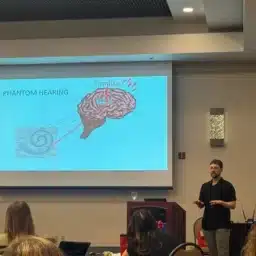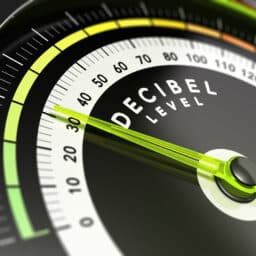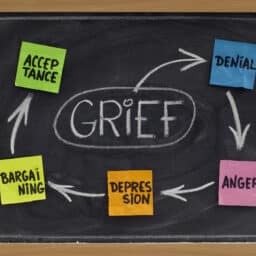Improve Communication This Valentine’s Day With Hearing Aids

Valentine’s Day is almost here, and that means you might be thinking of ways to show your significant other that you care. While it may not seem romantic at first glance, hearing aids might be the ticket. Why Are Hearing Aids a Great Valentine’s Gift? When you search “The secret to a lasting relationship,” you…
A Fresh Start for Your Hearing Health in 2026

You probably know more than a few people who have set, or are planning on setting, New Year’s resolutions. One of the earliest known instances of New Year’s resolutions dates back approximately 4,000 years to the ancient Babylonians. While the ancient Babylonians listed resolutions along the lines of paying back debts or returning borrowed items,…
How To Help Family Members With Hearing Loss Enjoy the Holidays

Whether you’re writing a card for a relative across the country or making that pie your grandchildren love for a big family dinner, the holidays are a season to spend a little extra time thinking about your loved ones. If one of our loved ones has hearing loss, helping them stay engaged throughout the season…
Preparing Your Hearing Aids for Holiday Gatherings

November is officially here, and that means the holidays aren’t far off. As the stores fill with tasty treats and holiday décor, you might be getting ready for the celebratory season in your own way. Whether your list includes a pumpkin latte from Presta Coffee Roasters or a trip to one of Tucson’s harvest festivals,…
Dr. Davies Presents at University of Arizona Workshop

Evan Davies, Au.D., AAA, CH-TM, was a featured presenter on patient-centered approaches to tinnitus management at the University of Arizona Speech, Language, and Hearing Sciences department’s Grunewald-Blitz Interprofessional Workshop on Friday, September 19. This workshop provided a valuable learning opportunity for both community professionals and faculty/students from the University of Arizona. As an audiologist at…
Understanding Tinnitus Supplements: What You Should Know

When you’re dealing with constant tinnitus, the sensation of ringing, buzzing or humming in the ears, it’s natural to want to try anything to block out the noise. There are a lot of tinnitus management options on the market, but not all of them are scientifically backed or effective. One example of this is tinnitus…
A Guide To Everyday Sounds by Decibel Level

Noise exposure is one of the most common causes of hearing loss, affecting approximately 5% of the global population. Prolonged exposure to noise at or above 85 decibels (dB) or short exposure to noise at or above 120 dB can result in hearing loss. While it’s helpful to know that exposure to 85 dB can…
The Emotional Journey of Hearing Loss: Understanding and Moving Forward

You may have heard of the five stages of grief: denial, anger, bargaining, depression and acceptance. These stages are often associated with coping with loss. But, they also provide a helpful framework for understanding the emotional journey of hearing loss. Let’s look at the hearing loss diagnosis and treatment process and how these stages may…
Show Your Ears Some Love: Self-Care Tips for Better Hearing Health

Valentine’s Day is just around the corner. While most of Valentine’s Day is centered around showing your partner you love and appreciate them, it’s also the perfect time to show yourself some love. One self-care area you may have been neglecting recently is your ear health. Let’s take a look at three ways you can…
Start the New Year Right With Four Hearing Health Resolutions

The start of a new year feels like a clean slate. Many see it as an opportunity to get in shape, eat healthier, travel more or maybe save more money. But there’s one important aspect of health that often gets left out of the conversation: hearing. Let’s look at why it’s a good idea to…